Harmful time-saving habits
In the hustle and bustle of modern society, the habit of eating too fast has become a common trend, especially among people with busy schedules.
Time pressure from work, study or social activities causes many people to choose to eat in a hurry, often taking only a few minutes to complete a meal. They can eat while working, surfing the phone or even eating on the go, leading to not paying attention to chewing thoroughly or enjoying the taste of the food.
According to Master, Doctor Nguyen Trong Tin, University of Medicine and Pharmacy Hospital, Ho Chi Minh City, Campus 3, the habit of eating too fast, although convenient, brings many negative consequences to health.
Eating too fast is the act of putting a large amount of food into the mouth, chewing it quickly and swallowing it continuously in a short period of time. This habit is common in urban environments, where the fast pace of life and work pressure shortens the time for eating.

Quick meals at the desk are a common habit of many young people today (Photo: Freepik).
According to Dr. Tin, the digestive process begins as soon as we see or smell food.
The parasympathetic nervous system stimulates the salivary glands, gastric glands and pancreas to secrete digestive juices. When tasting and chewing, the salivary glands secrete amylase to break down starch, while the mechanical grinding action reduces the size of food, helping to reduce the load on the stomach.
When swallowing, esophageal peristalsis coordinates with the upper and lower esophageal sphincters to transport food to the stomach.
The stomach receives food and contracts, mixing it with gastric juice containing hydrochloric acid and many different enzymes to digest proteins, fats, and starches in food, while controlling the rate of food being ejected into the duodenum.
This entire chain of reactions requires careful coordination between organs and takes a certain amount of time to achieve optimal results.
If you eat too fast, your body will not have time to complete the above physiological reactions. This is a bad habit because it disrupts the natural digestive rhythm, leading to a series of consequences such as reduced digestive efficiency, increased risk of reflux, obesity, motility disorders and damage to the stomach lining.
Reduced mechanical digestion: Food is not crushed, the contact area with digestive enzymes is reduced, causing amylase in saliva to work less effectively, causing the stomach to contract more strongly to compensate, easily causing smooth muscle fatigue and slow stomach emptying.
Sudden gastric overload: Large amounts of food going down quickly cause strong distension of the stomach wall, stimulating G cells to secrete excessive gastrin, easily irritating the mucosa, especially in people with existing ulcers, which will make symptoms more severe.
Esophageal-gastric coordination disorder: When swallowing continuously, the lower esophageal sphincter must open and close quickly, increasing the risk of reflux due to high stomach pressure pushing acid back up the esophagus.
Reduced satiety signals: The satiety center in the hypothalamus needs about 15-20 minutes to receive enough signals from the hormones cholecystokinin and leptin; eating quickly causes the calorie intake to exceed the need, leading to weight gain and obesity.
Increased risk of bloating and indigestion: Swallowing quickly is often accompanied by swallowing a lot of air, combined with slow digestion, causing gas in the stomach and intestines, causing bloating and belching.
How to eat properly?
Therefore, to have a healthy digestive system, Dr. Tin recommends that everyone should eat properly.
"When eating, people need to use all their senses such as seeing colors, smelling scents, feeling flavors, listening to chewing sounds... This helps to maximize the digestive secretion reflex," the doctor explained.
Besides, you should avoid eating while working, looking at your phone or thinking about stress. You should practice chewing thoroughly and swallowing slowly.
Each bite should be chewed 20-50 times to grind and mix well with saliva before swallowing; after swallowing, wait a few seconds before putting the next food into the mouth. A main meal should be eaten within 20-30 minutes to ensure that the satiety signal is effective.
Proper eating habits not only help the digestive system function optimally, but also improve weight control and reduce the risk of long-term digestive diseases.
Source: https://dantri.com.vn/suc-khoe/mot-thoi-quen-an-uong-hien-dai-de-tan-pha-da-day-20250828162927947.htm



![[Photo] Students of Binh Minh Primary School enjoy the full moon festival, receiving the joys of childhood](https://vphoto.vietnam.vn/thumb/1200x675/vietnam/resource/IMAGE/2025/10/3/8cf8abef22fe4471be400a818912cb85)
![[Photo] Prime Minister Pham Minh Chinh chairs meeting to deploy overcoming consequences of storm No. 10](https://vphoto.vietnam.vn/thumb/1200x675/vietnam/resource/IMAGE/2025/10/3/544f420dcc844463898fcbef46247d16)







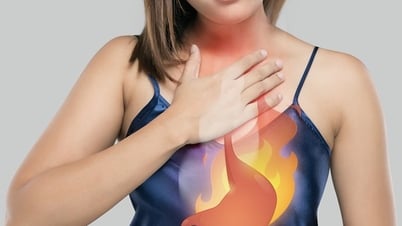




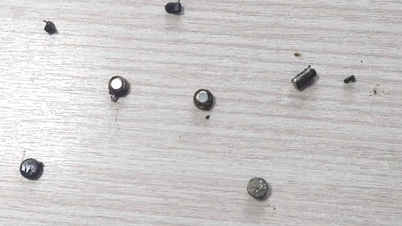


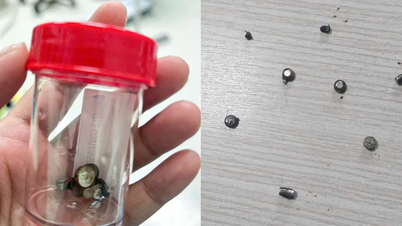

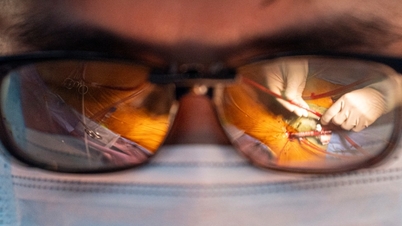



























































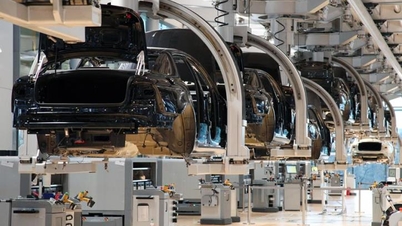























Comment (0)